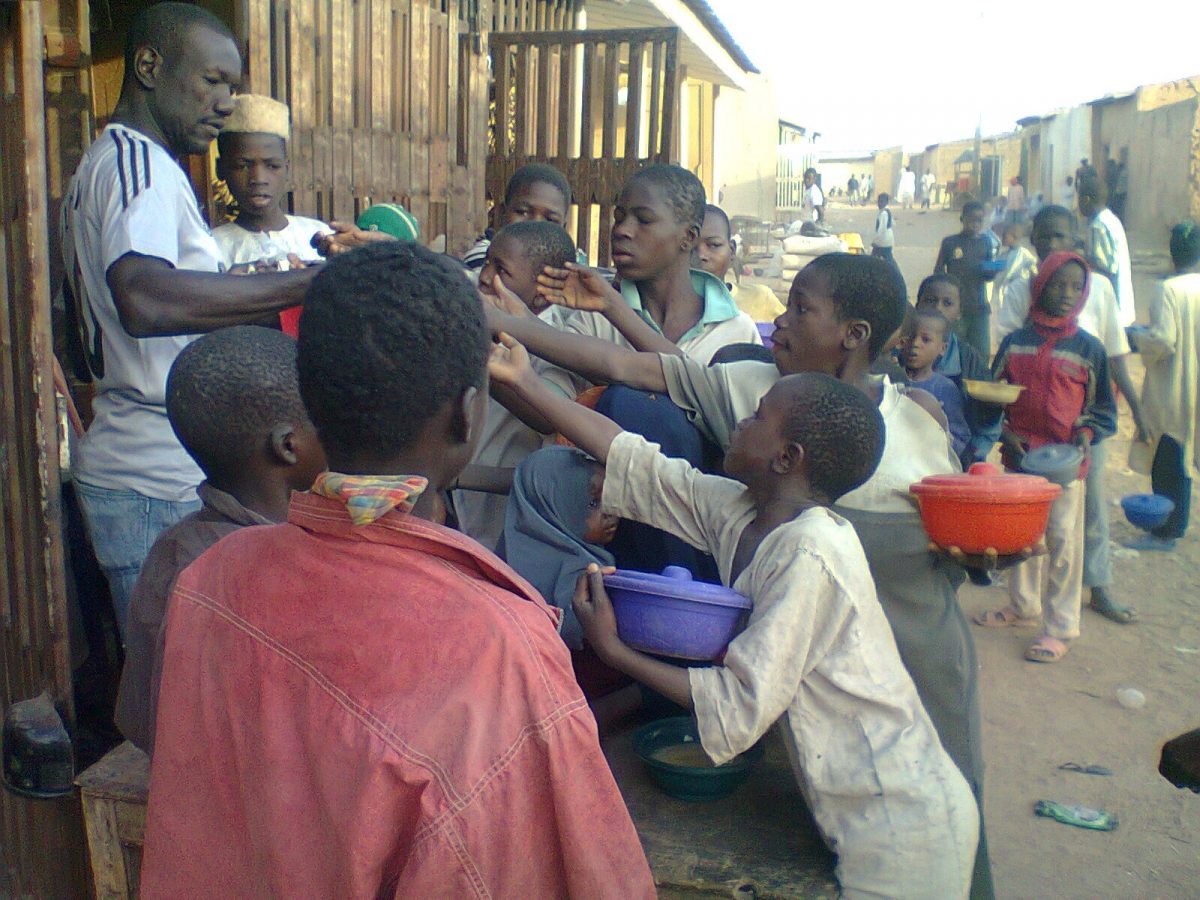by Muhammad Suleiman
This is my take, this is my understanding of the Almajiri industry. This my take, this take is purely an introspective attempt at understanding the continual exploitation of the spirit of a child, the socially sanctioned, and tyrannical denial of rights through dereliction of responsibility.
The highest point of happiness to a married couple after their first night of marriage consummation is when they hear the beautiful cry of their first child. To right thinking members of the society, even before giving the child his name, they begin to think of the task ahead of them. They begin to romantise the idea of what their child would become in future.
However, in Northern Nigeria, there are many a couple whose next line of thinking after the birth of their baby is to ask themselves which city and which ‘malam’ would they send their child to. They start deciding what age they would throw away their responsibility towards the child by sending him off to be trained by the fangs of the city.
To avoid the economic pains of spending to train their child, such a couple would yank off a child that’s below seven years, below seven, often times even below 5 years and send the child to the city. He goes where there is neither aunt nor uncle. Such a toddler begins his first life steps of uncertainty, rough living, and politico-economic exploitation.
At the outskirts of the city, the toddler is handed over to a ‘malam’, a man who has no identifiable source of income but has four wives, farms and other ‘businesses.’ Apart from the new toddler who has just joined the ‘malam’ there are other hundreds of kids sleeping in the open, eating scrubs, dressed in tattered rags, and always suffering from skin rashes, leeches, lice and wall bugs.
Each and everyday, the toddler and others like him would be sent to roam the city streets, engaging in ‘yawon bara.’ “Babiya-Allah” they always sing in chorus and hunger eaten voice. Should such a toddler and his gang of little boys come across nice food, by default, they know nice food is for ‘malam’ and his family.
When rain comes, the toddler and his crew would spend most of their hours working in the ‘malam’s newly acquired farms. The more toddlers this malam accept, the more farms he goes for because he has hands, not to feed, but to exploit. Should the Almajiri finish the work in their malam’s farm on time, malam would ask his neighbours if they need helping hands on their farms, should they answer in the affirmative, the young toddler would have to toil more farms and his sweat means sweet to his malam.
Gradually the toddler grows to hate not only his malam but also others whom he begin to see as a collective society that refuses to show him love, care, and needful training. With time, that village toddler grows to become an economically exploited chap. He grows to have a philosophy of ‘I have nothing to lose’ then I can do anything I want.
Consequently, the village cum city-hardened man begins to see exploitation as the only means of getting what he needs. To him, exploitation is it, he’s been exploited by his parents, by his malam and by the society that see nothing wrong in exploiting toddlers. He grows with anger and he is ready to explode at the slightest provocation. He is a time(less) bomb with no detonation button.
He looks for source of income and the city dwellers give him a motorcycle to do ‘express’ or ‘kabu-kabu.’ Even at that, he is still being exploited. The motorcycle is worth less than a 100,000 naira but he has to pay the owner 500 naira daily, by the end of the year, he has given the city dweller a minimum of 183,000 thousand naira and the motorcycle is still not his.
If the city-hardened and exploited young man is lucky, he would graduate to a bus driver and the economic exploitation continues. After so many years in the city with neither tangible knowledge, meaningful experience, nor any capital to fall back to, he recalls that his inheritance is lying fallow in the village. A long and tedious trip to the village, it dawns on him that some relatives and village champions in connivance with his village head have taken away the little farm plot he has come to claim.
He cannot survive in the village and has to rush back to the city. In the city, another set of exploiters are waiting for him. It is campaign time and the politicians need thugs. With constant supply of Tramadol, B5, Tramol, Roche, and other hallucinating inducing drugs, coupled with his long bottled up anger, the city-wise exploited guy is ripe for violence. He burns, he slashes, he kills, he rapes, he destroys, and he has no sympathy for a society that has exploited him for long.
To you, the reader and to I, the writer, we are to be blamed. If you and I haven’t participated in the politico-economic exploitation of the Almajiri, we condoned it for long by turning our heads the other way and say to ourselves, “It isn’t me, they aren’t my relatives”.
Muhammad Suleiman lives and works in Zaria, Kaduna State. He teaches at the Department of Mass Communications in the Ahmadu Bello University in Zaria. Connect with him on Facebook.
The opinions expressed in this article are solely those of the author.







